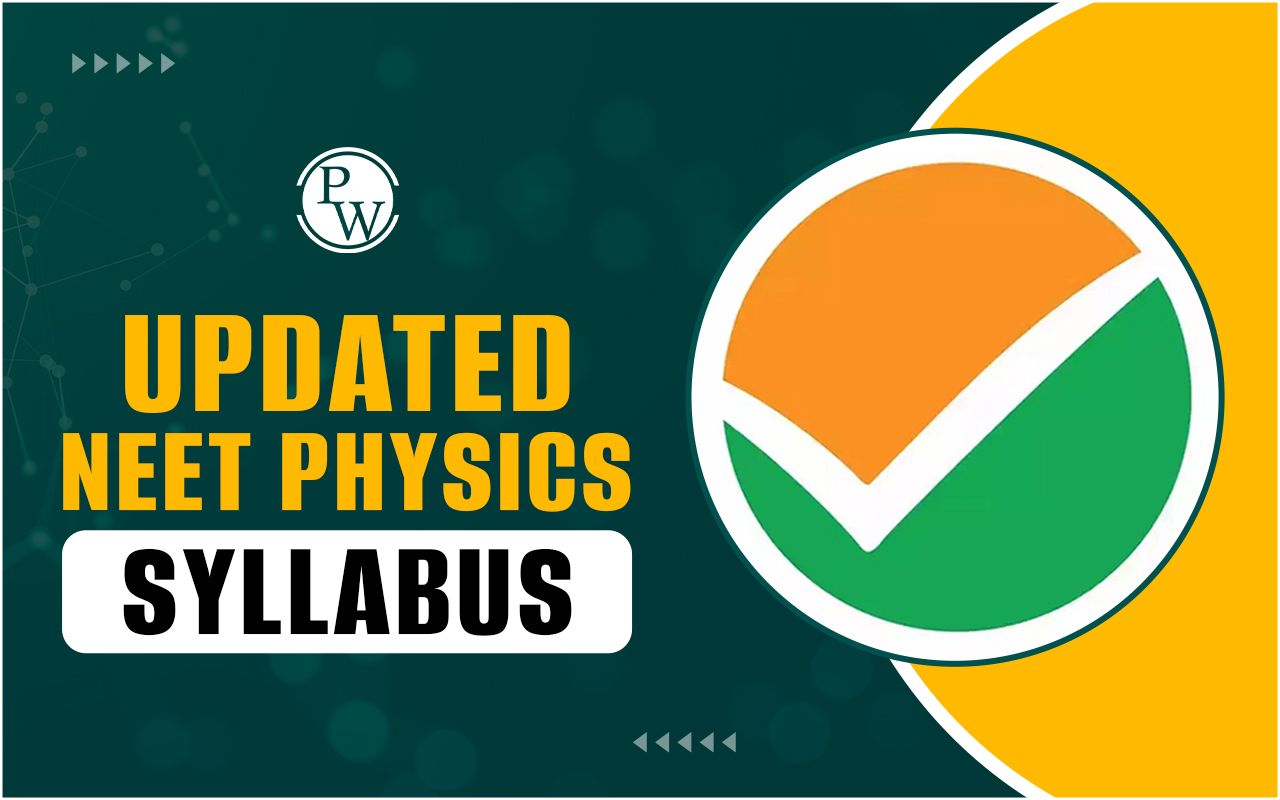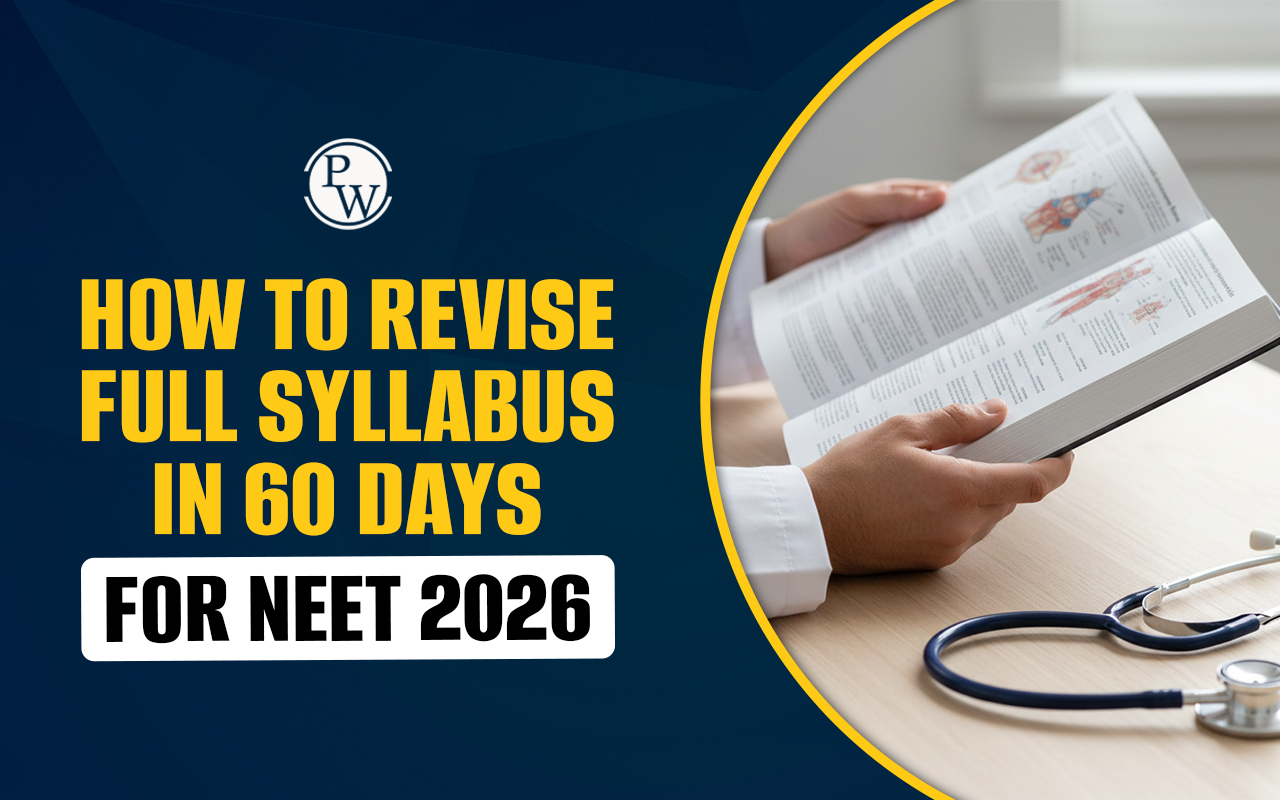
Reproductive Health MCQs: Reproductive Health is a part of NEET Biology syllabus. This chapter is included in the NEET syllabus and carries about 8% weightage in the Biology section. Practicing MCQs from this chapter helps students prepare well and score better in NEET. It also clears basic concepts and improves speed and accuracy. It improves revision, memory, and question-solving skills. Solving previous year questions also shows the common pattern asked in the NEET Exam.
Reproductive Health MCQs Overview
The Reproductive Health chapter explains various topics like safe sex practices, methods of birth control, sexually transmitted diseases (STDs), problems related to infertility, and different health programmes started by the government. To understand this chapter well, students should refer to NEET notes for Reproductive Health and practice questions from previous NEET exams. This helps in quick learning and understanding of the important points.
Download Last 5 Years NEET Previous Year Question Papers PDF
Free NEET PYQ PDF
What is Reproductive Health?
Reproductive Health means that a person is healthy in all parts of their reproductive system. It does not only mean there is no disease, but also that the person is physically, mentally, socially, and emotionally healthy. It means people can safely reproduce, have children if they want, and protect themselves from infections and unwanted pregnancies.
| NEET Exam Important Links | |
|---|---|
| NEET Syllabus | NEET Biology Notes |
| NEET Eligibility Criteria | NEET Exam Pattern |
| NEET Previous Year Question Papers | NEET Sample Papers |
Reproductive Health MCQs with Explanations
Let’s now look at some important multiple-choice questions with answers and clear explanations.
1. What are the major tasks under RCH programmes?
-
Creating awareness among people about various reproduction related aspects.
-
Providing facilities and support for building up a reproductively healthy society.
-
Both (1) and (2)
-
None of these.
Answer: (C) Both (1) and (2)
Explanation: RCH programmes include both awareness and facilities for reproductive care. These two are the main goals of the programme.
2. According to WHO, reproductive health means;
-
a total well being in all aspects of reproduction like physical, emotional, behavioural, social.
-
healthy body without any STIs.
-
having normal reproductive organs which function normally.
-
None of these.
Answer: (A) a total well being in all aspects of reproduction like physical, emotional, behavioural, social.
Explanation: WHO defines reproductive health as complete well-being in all areas of life related to reproduction, not just physical health.
3. Full form of the RCH is;
-
Reproduction Cum Health care programmes.
-
Rural Community Health.
-
Reproductive and Classical Health care programmes.
-
Reproductive and Child Health care programmes.
Answer: (D) Reproductive and Child Health care programmes.
Explanation: RCH stands for Reproductive and Child Health care. It covers both mother and child care in reproduction.
4. Primary step/steps that can be taken towards attaining reproductive health are;
-
counselling and creating awareness among people about reproductive organs, adolescence and associated changes.
-
educating about safe and hygienic sexual practices.
-
creating awareness about STDs including AIDS and providing better detection and cure of STDs.
-
All of these.
Answer: (D) All of these.
Explanation: All the steps listed are part of basic education and awareness about reproductive health.
5. The ‘family planning’ programmes were periodically assessed over the past decades. Improved programmes covering wider reproduction-related areas are currently in operation under the popular name;
-
RCH programmes.
-
ART programmes.
-
MTP programmes.
-
test tube baby programmes.
Answer: (A) RCH programmes.
Explanation: Family planning was a start, but now RCH covers more areas like safe delivery, child health, and contraception.
6. Infrastructural facilities, professional experts and material support are provided by RCH to attend problems like;
-
pregnancy and delivery.
-
STDs and abortions.
-
contraception, menstrual problems and infertility.
-
All of these.
Answer: (D) All of these.
Explanation: RCH helps with all these problems related to reproductive care in both women and men.
7. According to the World Health Organisation (WHO), reproductive health means a total well-being in all aspects of reproduction, that involves;
-
physical.
-
social.
-
emotional & behavioural.
-
All of these.
Answer: (D) All of these.
Explanation: WHO includes all types of well-being – not just physical health – in its definition of reproductive health.
8. Some of the activities of RCH include;
(i) advertising the slogan “Hum do hamare do”
(ii) introducing sex education in schools.
(iii) providing facility for early detection of STDs, treatment and cure.
(iv) Statutory raising marriageable age of females to 18 years and males to 21 years.
-
(i), (ii) and (iii).
-
(ii) and (iii).
-
(ii), (iii) and (iv).
-
All of these.
Answer: (B) (ii) and (iii).
Explanation: These are all actions taken under RCH programmes to promote awareness and healthy practices.
9. Assertion (A): Improving access to family planning services is a crucial component of Reproductive and Child Health (RCH) programmes.
Reason (R): Family planning helps in spacing and limiting pregnancies, contributing to maternal and child health by ensuring adequate care for both mothers and children.
-
Both Assertion (A) and Reason (R) are true, and Reason (R) is a correct explanation of Assertion (A).
-
Both Assertion (A) and Reason (R) are true, but Reason (R) is not a correct explanation of Assertion (A).
-
Assertion (A) is true, and Reason (R) is false.
-
Assertion (A) is false, and Reason (R) is true.
Answer: (A) Both Assertion (A) and Reason (R) are true, and Reason (R) is a correct explanation of Assertion (A).
Explanation: Family planning is an important part of RCH, and it helps take better care of mothers and babies.
10. Statement-I: Statutory ban on amniocentesis for foetal sex determination is to legally check increasing menace of female foeticides.
Statement-II: Indiscriminate and illegal female foeticides are reported to be high in India.
-
Statement-I and Statement-II both are correct.
-
Statement-I is correct but Statement-II is incorrect.
-
Statement-I is incorrect, but Statement-II is correct.
-
Statement-I and Statement-II both are incorrect.
Answer: (A) Statement-I and Statement-II both are correct.
Explanation: The ban was introduced to stop female foeticide, which is still a problem in India.
11. Statement-I: India was amongst the first countries in the world to initiate action plans and programmes at a national level to attain total reproductive health as a social goal.
Statement-II: With the help of audio-visual and the print-media governmental and non-governmental agencies have taken various steps to create awareness among the people about reproduction-related aspects.
-
Statement-I and Statement-II both are correct.
-
Statement-I is correct but Statement-II is incorrect.
-
Statement-I is incorrect, but Statement-II is correct.
-
Statement-I and Statement-II both are incorrect.
Answer: (A) Statement-I and Statement-II both are correct.
Explanation: India has taken steps on a national level, and both government and NGOs work on spreading awareness.
12. In the context of amniocentesis, which of the following statements is incorrect?
-
It is usually done when a woman is between 14–16 weeks pregnant.
-
It is used for prenatal sex determination.
-
It can be used for detection of Down’s syndrome.
-
It can be used for detection of cleft palate.
Answer: (D) It can be used for detection of cleft palate.
Explanation: Amniocentesis is used for detecting genetic conditions, not structural issues like cleft palate.
13.Certain statements regarding amniocentesis are given.
Identify the incorrect ones.
(a) Statutorily banned for foetal sex determination.
(b) Foetal cells in amniotic fluid are analysed to detect chromosomal anomalies and genetic disorders.
(c) Dissolved substances in the amniotic fluid are analysed.
(d) Genetic disorders like sickle cell anemia, down syndrome and haemophilia can be detected.
-
a and d.
-
c and d.
-
a and b.
-
None of these.
Answer: (D) None of these.
Explanation: Statement (c) is incorrect because it also checks cells, not just dissolved substances. Statement (d) is partly wrong due to inaccuracy.
14. Match List-I with List-II
|
List I |
List II |
|
A. Helps to discourage myths and misconception among youth |
|
B. Initiated in 1951 |
|
C. It covers wide range of reproduction related areas |
|
D. Use of audio-visual and print media |
-
(I)-(C); (II)-(A); (III)-(B); (IV)-(D)
-
(I)-(B); (II)-(C); (III)-(A); (IV)-(D)
-
(I)-(A); (II)-(C); (III)-(B); (IV)-(D)
-
(I)-(B); (II)-(A); (III)-(C); (IV)-(D)
Answer: (D) (I)-(B); (II)-(A); (III)-(C); (IV)-(D)
Explanation: These matches show how each effort helps improve reproductive health through planning, education, support, and awareness.
15. Match List-I with List-II
|
List I |
List II |
|
(I) Amniocentesis |
(A) Detect genetic disorders |
|
(II) RCH |
(B) 1951 |
|
(III) Awareness creation |
(C) Use of media |
|
(IV) Family planning |
(D) Reproductive and Child Health care |
-
(I)-(C); (II)-(A); (III)-(B); (IV)-(D)
-
(I)-(B); (II)-(C); (III)-(A); (IV)-(D)
-
(I)-(A); (II)-(D); (III)-(C); (IV)-(B)
-
(I)-(B); (II)-(A); (III)-(C); (IV)-(D)
Answer: (C) (I)-(A); (II)-(D); (III)-(C); (IV)-(B)
Explanation: Amniocentesis helps detect disorders. RCH supports reproductive care. Media is used for awareness. Family planning began in 1951.
Prepare for NEET with PW Online NEET Coaching! Our courses offer structured lessons, clear explanations of concepts, and interactive classes to support your NEET preparation effectively.
Reproductive Health MCQs FAQs
What is meant by reproductive health?
What is reproductive health?
What are the 5 importance of reproductive health?
What are the 4 pillars of reproductive health?
What are the types of reproductive health?










